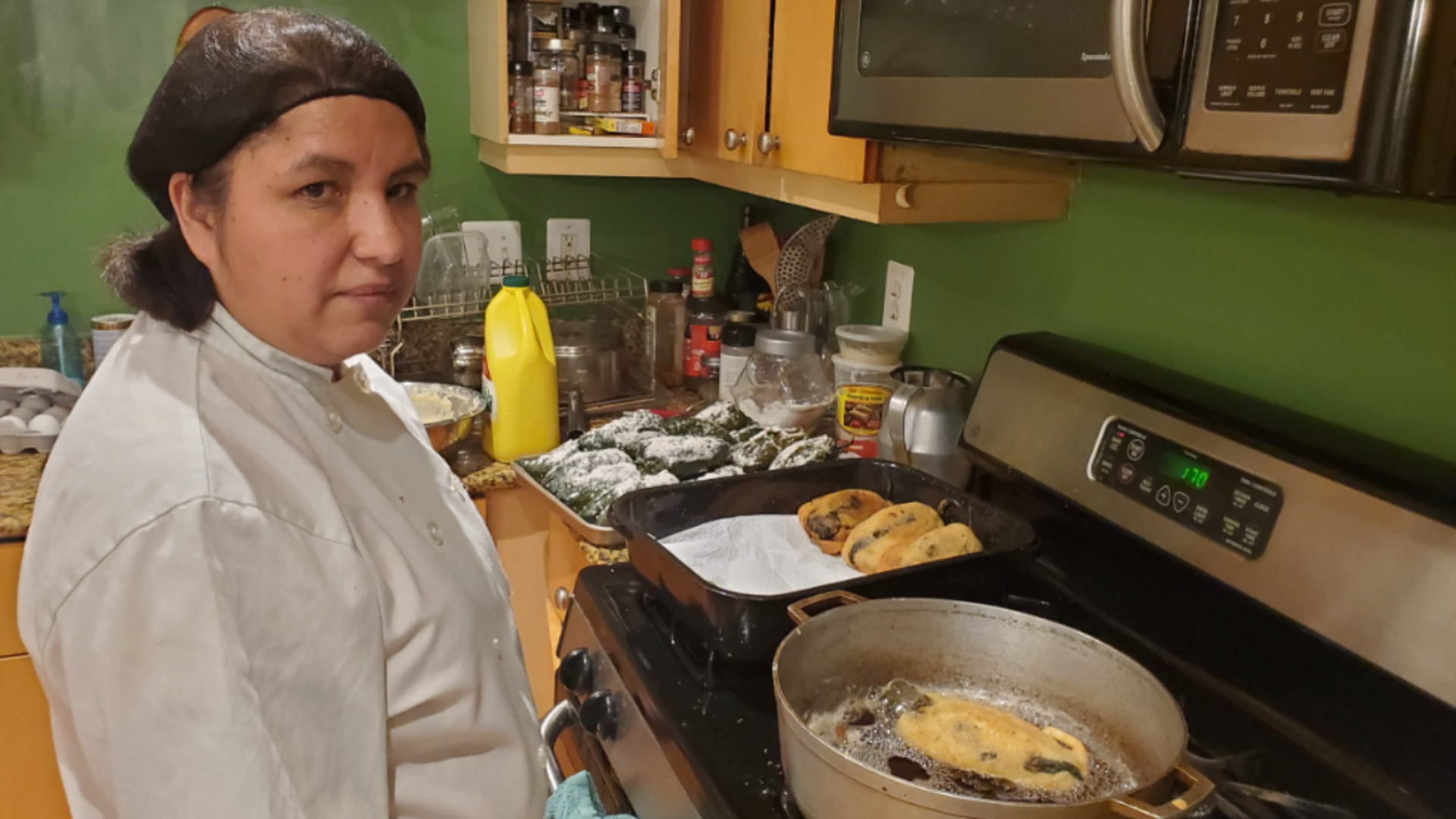D.C. street vendors unite
Add Axios as your preferred source to
see more of our stories on Google.

Chef Angela Lazaro Salazar in action. Photo courtesy of Vendors United Food Cooperative.
A new effort will try to offer a lifeline to D.C. street food vendors, many of whom are a mainstay in Columbia Heights and face threat of the criminalization.
Why it matters: The venture, called United Food Cooperative, is a catered meal service owned and operated by indigenous chefs in the District. The initiative will support street vendors in the area who risk jail time and fines if they don't have a license.
Driving the news: It launched a day before Genesis Lemus, a Ward 4 teen and youth street vendor, testifies before the council's judiciary committee about how she was pushed to the ground by police in 2019 for selling atol de elote (a sweet corn and milk drink) in Columbia Heights.
What happened: According to testimony Lemus will read today, she was selling food on 14th Street when police told her she could not do it without a license.
- Video of the incident posted to social media shows Lemus, then 15, being pushed to the ground by officers after trying to free her little brother from an officer and screaming about pressure on her knee. The teen was hospitalized, DCist reported.
- Lemus plans to testify that she still has pain in her knee, walks with a limp, and has been unable to skate or play soccer.
- “I'm only 17 years old and it really upsets me because this wasn't supposed to happen and I will have to live with this for the rest of my life,” her written testimony states.
Last January, nine council members re-introduced legislation to decriminalize street vending. D.C.'s Police Reform Committee recommended last April passing the legislation, noting that many vendors are people of color who face jail time and fines up to $500 if they fail to comply with vending regulations.
Between the lines: The vendor initiative, created through a partnership between non-profit Beloved Community Incubator and Vendedores Unidos, a street vendor advocacy group, is a “CSA (community-supported agriculture) for meals,” explains Geoff Gilbert, legal and technical assistant director of Beloved Community Incubator.
- People can purchase a subscription for eight weeks of meals.
- At the launch event last night, a line of people stretched out of a Columbia Heights park as new subscribers came to pick up their share of meals and chat with vendors.
What they're saying: Santiaga González, a street vendor in Ward 4, said in a statement that she is grateful to be able to bring her family's food traditions to D.C., and criticizes police for trying to stop vendors attempting to share food and make a living.
- “This is especially difficult because I've received zero support in unemployment or federal stimulus checks to survive the pandemic,” she says.
Lemus was also at the event and said she came out to support decriminalizing street vending. She says her mom has been a street vendor and now supports other vendors through Vendedores Unidos.
Lemus adds that talking about her experience in 2019 is emotional for her.
- "I don't think that street vending should be a crime, you know, and especially a crime that allows the police to harm us and hurt us," she says.
Go deeper: Street vendors in D.C. are excluded workers. Street vendors are often undocumented and work in the informal cash economy while also being criminalized for working on the sidewalk, Gilbert wrote in a letter earlier this month to council member Kenyan McDuffie, who chairs the committee on business and economic development.
- “There has long effectively been no path to compliance for many street vendors and no path for street vendors, who are working-class Black and Brown workers, to transition from the informal economy to the formal economy and all of the workplace safety and wage protection that the formal offers,” he wrote.
- This meant vendors were left out of federal cash assistance programs during the pandemic.
A group of excluded workers, many undocumented, last year asked D.C. to increase a $15 million allocation for cash assistance to excluded workers to $200 million, the Washington Post reported.
